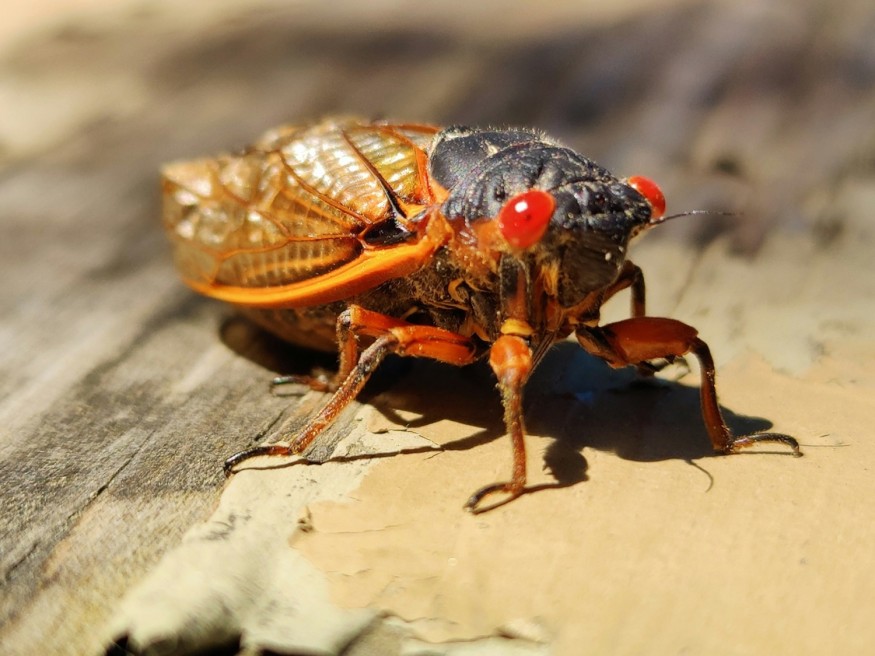Cicadas with potential fungal pathogen, that makes them hyper-sexual, are expected to swarm the United States this year, according to scientists. This 2024 spring season, trillions of cicadas are expected to emerge from the ground.
Dubbed by an expert as "cicadageddon," the event is projected to involve the overlap of two broods, namely the 13-year cicadas, called Brood XIX, and the 17-year cicadas, called Brood XIII.
Cicadas in general can be found in all continents of Earth except Antarctica, and these winged insects are distinct from locusts. Known for their long lives, cicadas spent most of their lifetime underground only to emerge in droves to mate during cycles of 13 years or 17 years.
By the middle of 2021, a swarm of cicadas emerged across the Eastern US amid a hot weather during the spring season and its transition to summer.
Cicadageddon Approaches

The rare phenomenon cicadageddon, as called by cicada expert John Cooley from the University of Connecticut, is expected to occur across the US in the coming weeks. Particularly, the cicada swarm will make a "safe" yet overwhelming appearance in parts of the Southeast and Midwest regions.
Although there have been cicada events over the past several years and decades, the upcoming simultaneous emergence of the two broods will be the first time since the year 1803. This means that hundreds of trillions or even quadrillions of cicadas could swarm different parts of the country, according to Cooley.
It is not clear if the looming cicada swarm will significantly impact wildlife and even humans, especially that some of the insects are expected to be infected with a harmful fungus.
The fungal pathogen, called Massospora cicadina, is a sexually transmitted disease among the insects and turns them into so-called "zombie cicadas," according to scientists. The fungal infection replaces the end of the cicada's abdomen with plug of spores that erupts from their bodies.
Furthermore, the infection makes the genitals of cicadas fall off. The fungi M. cicadina infects only the 13-year Brood XIX and the 17-year Brood XIII cicada species.
Also Read: Noisy Recurrence: Billions Of Cicadas Set to Emerge In May After 17-Year Cycle
What are Cicadas?
Cicadas belong to the superfamily Cicadoidea of insects under the order Hemiptera, commonly called as true bugs. The order consists of more than 80,000 species, including cicadas, bed bugs, aphids, and leafhoppers.
Among the many characteristics of cicadas, they are known for their generation of loud noises, which are either mating calls and responses. Cicada sounds are comparable to the loudness of a lawnmower, motorcycle, or tractor, experts say.
In line with the approaching cicada event this spring, the U.S. Department of Agriculture has provided a map of the country to show the emergence of the 13-year cicada and 17-year cicada broods from 2013 to 2029. Long-term forecasts by scientists also show that the unprecedented event will occur again in the years 2037 and 2076.
© 2025 NatureWorldNews.com All rights reserved. Do not reproduce without permission.

